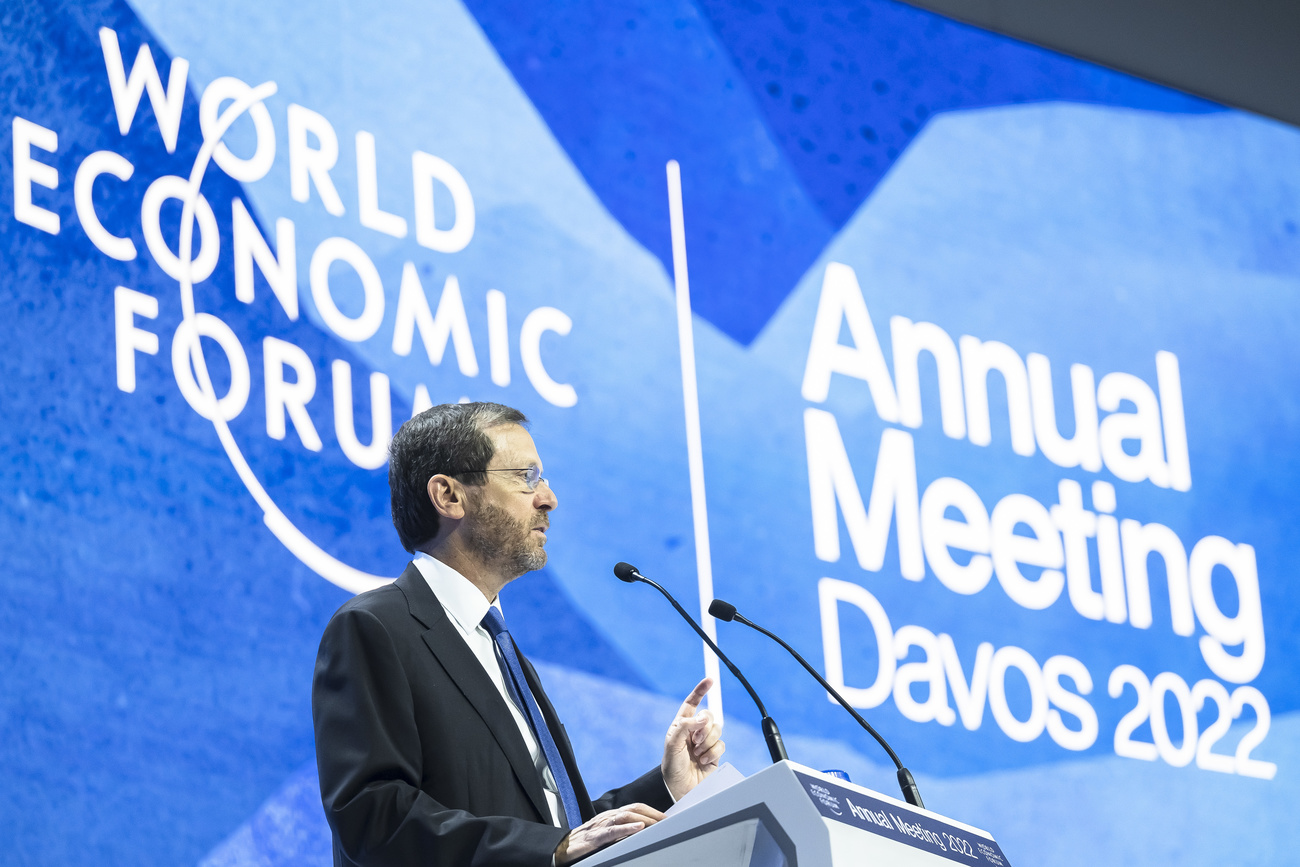
Middle East conflict takes centre stage at the WEF on Wednesday

The Middle East conflict and the war between Israel and Hamas, the Islamist movement that rules the Gaza Strip, will take centre stage at the World Economic Forum (WEF) in Davos on Wednesday. The planned appearance by Israeli President Isaac Herzog is important.
According to a press release, Herzog will be travelling to the event together with First Lady Michal Herzog and a delegation of relatives of hostages who are still being held by the radical Islamic group Hamas in Gaza. Herzog intends to give a speech and hold a series of meetings with other leading politicians.
The aim of the visit is to exert “intense political pressure” for the release of the hostages and to make the heads of state and government aware of the consequences of the attack committed by Hamas on October 7, according to the Israeli presidential office.
+Swiss Senate votes in favour of banning Hamas
Also present in Davos are several ministers from Qatar and the United Arab Emirates, which are considered mediators in the conflict. High-ranking delegations from the crisis region, including Saudi Arabia, Jordan, Lebanon and Iraq, are also present.
Macron and Milei give speeches
On Wednesday, the only head of state from the seven largest western industrialised nations will be making an appearance at the WEF: French President Emmanuel Macron. He is due to give a speech on his country’s role in the future of Europe. UN Secretary-General António Guterres will also address the Forum participants.
+ Our coverage of the Israeli-Palestinian war
The arrival of the new Argentinian President Javier Milei is eagerly awaited. Davos is his first trip abroad as president. The ultra-liberal head of state has already introduced numerous reforms. In Europe, he has been criticised in part as a right-wing populist. In addition to his speech, several bilateral talks are planned.
The WEF meeting with 2,800 guests from all over the world also continues in economic terms. Following the emergency rescue of the major Swiss bank Credit Suisse by its competitor UBS, UBS boss Sergio Ermotti will be among those speaking on the question of whether the banks are equipped for the future.
This news story has been written and carefully fact-checked by an external editorial team. At SWI swissinfo.ch we select the most relevant news for an international audience and use automatic translation tools such as DeepL to translate it into English. Providing you with automatically translated news gives us the time to write more in-depth articles. You can find them here.
If you want to know more about how we work, have a look here, and if you have feedback on this news story please write to english@swissinfo.ch.

In compliance with the JTI standards
More: SWI swissinfo.ch certified by the Journalism Trust Initiative































You can find an overview of ongoing debates with our journalists here . Please join us!
If you want to start a conversation about a topic raised in this article or want to report factual errors, email us at english@swissinfo.ch.